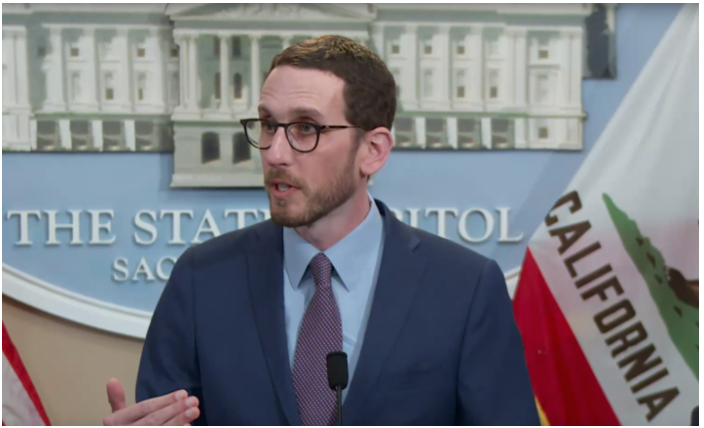CommentsDEEGAN ON LA-He’s baaack! State Senator Scott Wiener (SD11) has introduced a new density bill in the state legislature called SB-50 Planning and zoning: housing development: equitable communities incentive.
It’s the ghost of his SB 827, that had been described as a “transit-rich housing bonus bill” with a menu of exemptions for developers. That bill was tabled in the legislative session that just ended, unable to get the support needed to push it forward.
Wiener‘s new bill, SB 50, was introduced on the third day of the 2019-2020 legislative session. It has emerged in a new form, but with a few additions that try to make it look more acceptable than his last attempt at increasing density. When the LA City Council discussed the earlier version (SB827), veteran Sacramento and Los Angeles politico Paul Koretz (CD5), who has seen a lot of bills-in-the-making, remarked “I think this is the craziest bill I’ve ever seen.”
This new iteration, introduced on December 3, is still so new that’s there’s not been much chance for reactions. But, the facts are that It does have some more attractive elements than the trashed SB827. But, also some dangers. The legislative analyst explains that “Existing law, known as the Density Bonus Law requires, when an applicant proposes a housing development within the jurisdiction of a local government, that the city, county, or city and county provide the developer with a density bonus and other incentives or concessions for the production of lower income housing units or for the donation of land within the development if the developer, among other things, agrees to construct a specified percentage of units for very low, low-, or moderate-income households or qualifying residents.”
The new bill would require that:
- a city, county, or city and county to grant upon request an equitable communities incentive (generally understood as “one that offers complete social, physical and mental well-being to all its residents at all stages of life and has the following themes embedded across all the components: accessibility, affordability, stability, diversity, safety, equity”) when a development proponent seeks and agrees to construct a residential development that satisfies specified criteria, including, among other things, that the residential development is either a job-rich housing project or a transit-rich housing project,
- the site does not contain, or has not contained, housing occupied by tenants or accommodations withdrawn from rent or lease in accordance with specified law within specified time periods;
- The bill would require that a residential development eligible for an equitable communities incentive receive waivers from maximum controls on density and automobile parking requirements greater than 0.5 parking spots per unit, up to 3 additional incentives or concessions under the Density Bonus Law, and specified additional waivers if the residential development is located within a 1/2-mile or 1/4-mile radius of a major transit stop.
- the changes proposed by this bill address a matter of statewide concern rather than a municipal affair and, therefore, apply to all cities, including charter cities.
- this bill would impose a state-mandated local program.
That’s a lot to consider and assess. The bill has strengths, weaknesses, opportunities and threats, as viewed through a business assessment tool called SWOT that is used by corporate America and others for conducting situational analyses.
A strength could be the protection of renters’ housing. A weakness could be seen as the reduction of parking, holding fast to the dream that when you live near transit you will use transit. An opportunity looks like activists being able to demand “equitable communities.” A very major threat which our politicos must fight to eliminate is the overriding of local control in a Charter City like Los Angeles. Being a charter city allows, by law, for all decisions to be made locally. The new Wiener bill expressly calls for “a state-mandated local program.”
It’s early. The bill needs to be assigned to committee(s) and then the back and forth begins. On January 7 the legislature reconvenes for the opening of the 2019 “regular session.” The 2018 “regular session” ran from January 3-August 31, so we can look forward to many months of struggle on this new bill.
Scott Wiener may have lost round one when his SB827 went nowhere, but he’s obviously passionate about this, and his network of Abundant Housing LA advocates has likely grown and become more organized. They are smartly attempting to utilize the Spring 2019 Neighborhood Council elections to obtain seats on NC boards and land use committees to help them influence housing density and any other proprietary issues they have. If seated, they will become part of an official community voice on SB50. That’s also an assessment that must be included in the plans of activists: knowing exactly who is against you. He’s back, and so are they: both should be taken very seriously.
(Tim Deegan is a civic activist whose DEEGAN ON LA weekly column about city planning, new urbanism, the environment, and the homeless appear in CityWatch. Tim can be reached at [email protected].) Edited for CityWatch by Linda Abrams.
















